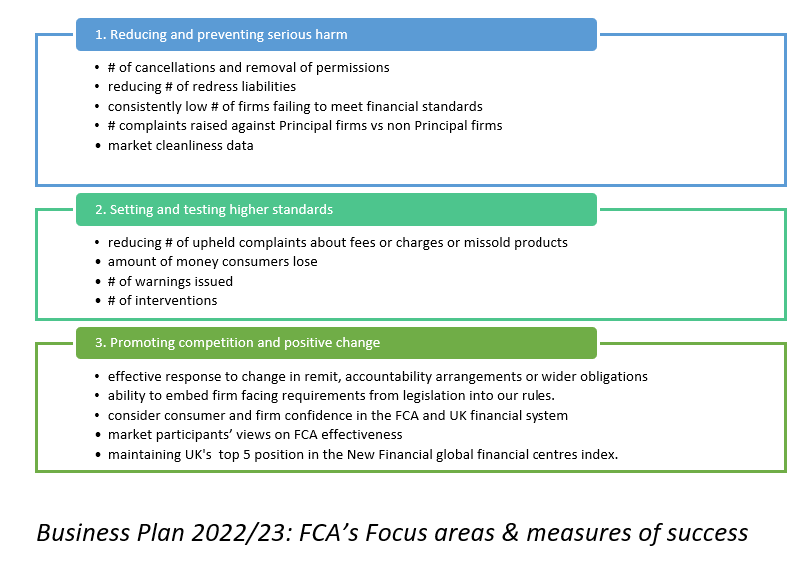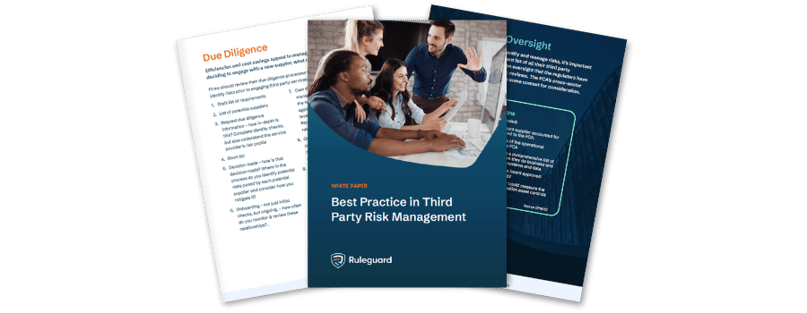%2024%20(1).png?width=150&height=161&name=Recognised%20CPD%20Badge%20(transparent)%2024%20(1).png)
FRF Review:
The FRF Review outlined several recommendations, which are implemented by the Financial Services and Markets Bill (FSM Bill). These proposals were first outlined in the Government’s consultation paper published in November 2021 and confirmed in the formal response. The recommendations include:
- Amending regulatory statutory objectives and regulatory principles to have greater focus on growth in a sustainable way and encourage international competitiveness
- Increasing accountability of the FCA and PRA to Parliament
- Strengthening the relationship with HM Treasury
- Enhancing engagement with stakeholders
- Repealing retained EU law and
- Creating a Designated Activity Regime (DAR) for some activities performed by unauthorised persons
Will the regulators merge?
Whilst the response to the consultations was published in July, and prior to the appointment of our new Prime Minister, there doesn’t seem to be any mention of merging the regulators yet. In fact, a recent House of Commons debate (7th September 2022) concluded that it did not see the need to merge regulators. Regulatory response:
Regulatory response:
The PRA recently issued a discussion paper (DP4/22) setting out how it plans to respond to greater responsibility for policy and rule setting. Notably, the PRA indicated that:
- it would continue to look for ways to facilitate international competitiveness of the UK economy via robust prudential standards and global discussions
- it will take advantage of the opportunity to review policy and aim to provide firms with greater ‘predictability over potential changes’ and make its framework ‘more accessible and user-friendly’
- changes are an opportunity for the PRA to be more flexible in its response to risk and to increase stakeholder engagement in the policy-making cycle.
The regulator wishes to embrace its responsibility for rulemaking. The ability to set rules will enable the PRA to respond quickly when changes are required. It also means that the PRA will need to collate relevant data from key stakeholders to inform the rulemaking process. This is reflected in the PRA emphasising its work to streamline reporting requirements; citing plans for full reviews of data collection in the insurance and banking sectors. Firms have until 8 December 2022 to respond to the discussion paper.
In a similar vein, the FCA issued its 3-year strategy to 2025; outlining how it will meet the FRF recommendations. The FCA's three key priorities for 2022/2023 align to its wider strategy:
- Reducing and preventing serious harm
- Setting and testing higher standards
- Promoting competition and positive change
FCA’s strategy sets out thirteen outcomes to support these priorities.

The regulatory framework supports the financial markets by contributing to discussions on international frameworks and ensuring that the UK continues to be a leading financial centre.
Under the proposed DAR the regulators take on greater responsibility for those unauthorised entities who undertake designated activities. These firms would be obliged to comply with rules as determined by the regulators in relation to the designated activities. The designated activities are set out in Schedule 6B of the FSM Bill and include:
- Activities related to entering into derivatives contracts and holding positions in commodity derivatives
- Short selling
- On a securitisation, acting as an originator, sponsor, original lender or a securitisation special purpose entity and selling a securitisation position to a U.K. retail client
- Offering securities to the market and admission of securities to trading on a securities market
- Using a benchmark and contributing to a benchmark
Next steps:
As indicated, under the FSM Bill, we will see the regulators take on more responsibility. Both regulators see these changes as an opportunity to engage with industry to shape policy that is fit for purpose.
We also see the regulators continuing to focus on the importance of data to identify risks in the markets and enabling proactive supervision.
How will these changes affect firms, whether regulated or unregulated? The PRA has clearly stated that firms remain responsible for implementing policy. Additionally, the PRA says that it intends to engage, and track a firm’s progress against policy by requesting updates. The FCA’s expectations are no different. Firms are expected to cope with the ever-increasing regulatory change requirements.
Ruleguard regulatory change management:
Regardless of a firm’s size, the compliance landscape is likely to be extremely broad and complex. Ruleguard helps senior management to demonstrate compliance with applicable rules. Firms can:
- manage a large quantity of rapidly changing regulation
- easily collate relevant updates into a centralised location
- review prospective changes to aid planning
- track imminent rule changes
- produce an audit trail for regulatory changes that occur each year
Please contact us for further information on Tel: 020 3965 2166 or hello@ruleguard.com.
Webinars:
To register your interest or learn more, please click here.
White Papers:
Request a complimentary copy of our White Paper on Best Practice in Third-Party Risk Management click here.
Further resources:
See our blog page for further articles or contact us via hello@ruleguard.com.
Visit our website to find out more about how Ruleguard can help: https://www.ruleguard.com/platform
Contact the author

Head of Client Regulation| Ruleguard





.png?width=400&height=166&name=webinar%20-%20Client%20asset%20protection%20(1).png)








.jpg?width=400&height=166&name=shutterstock_2450801853%20(1).jpg)



.png?width=400&height=166&name=Compliance%20Monitoring%20White%20Paper%20(1).png)

























